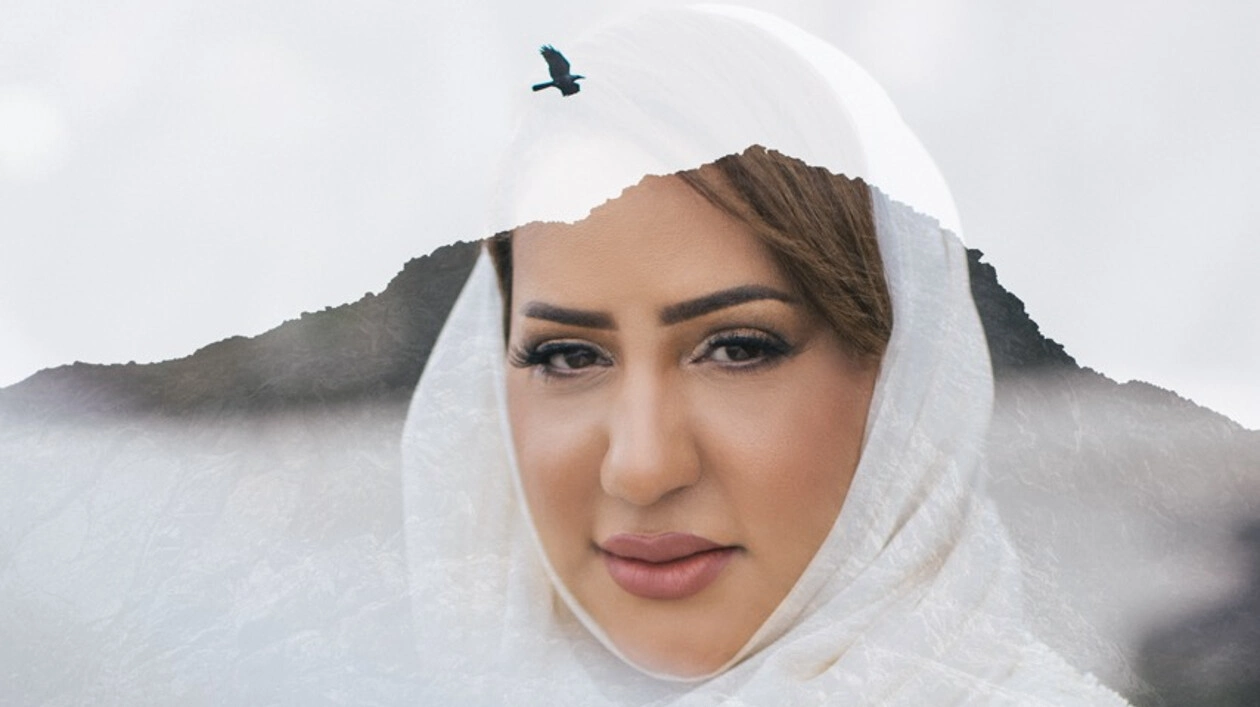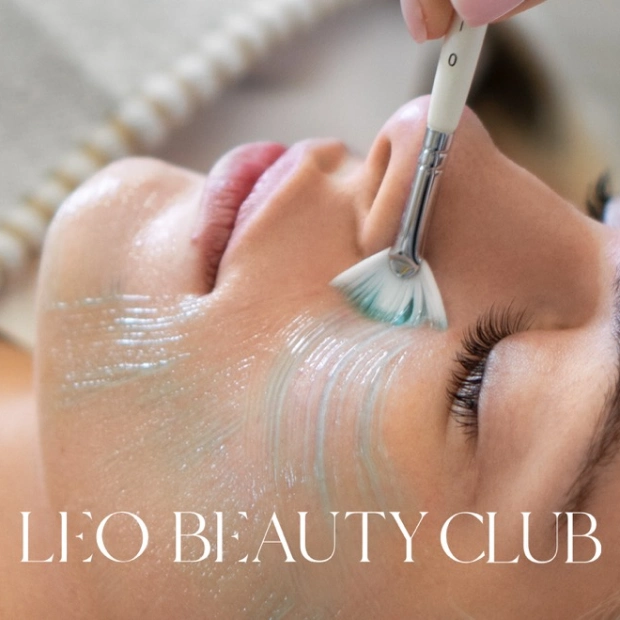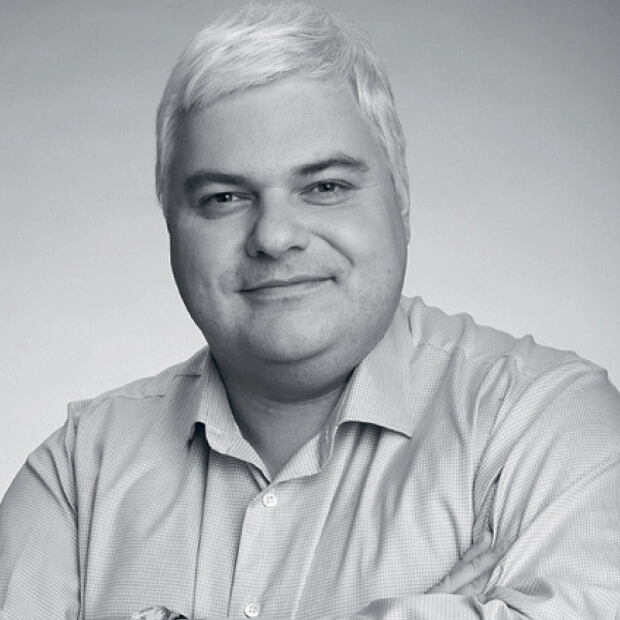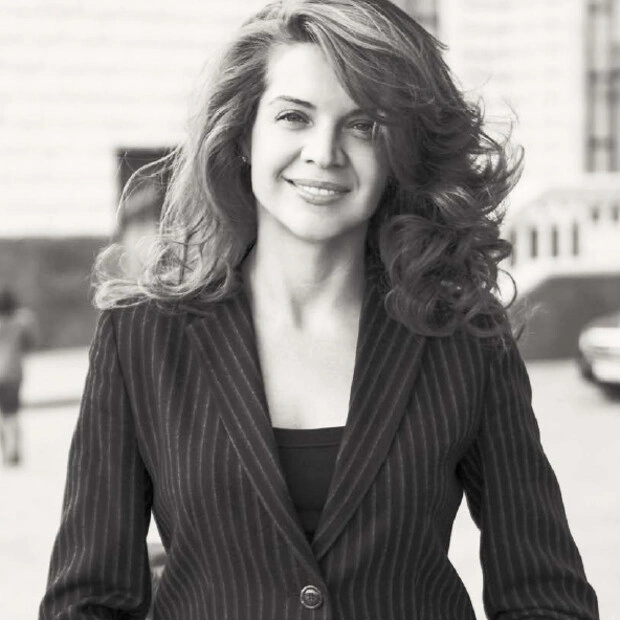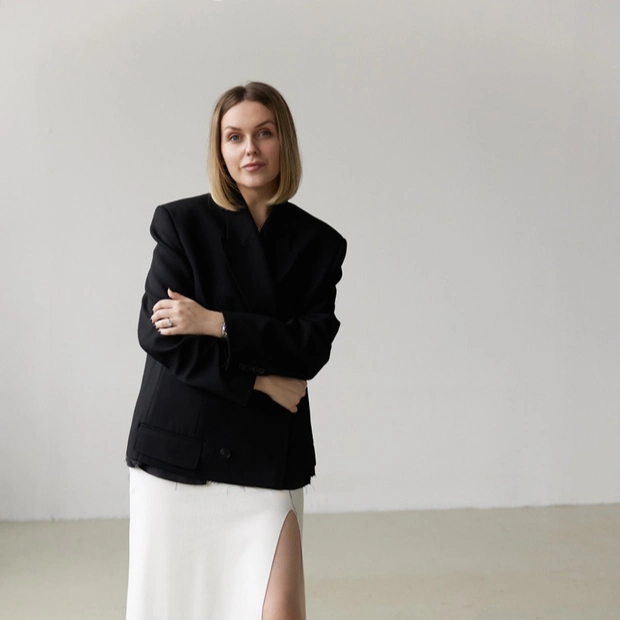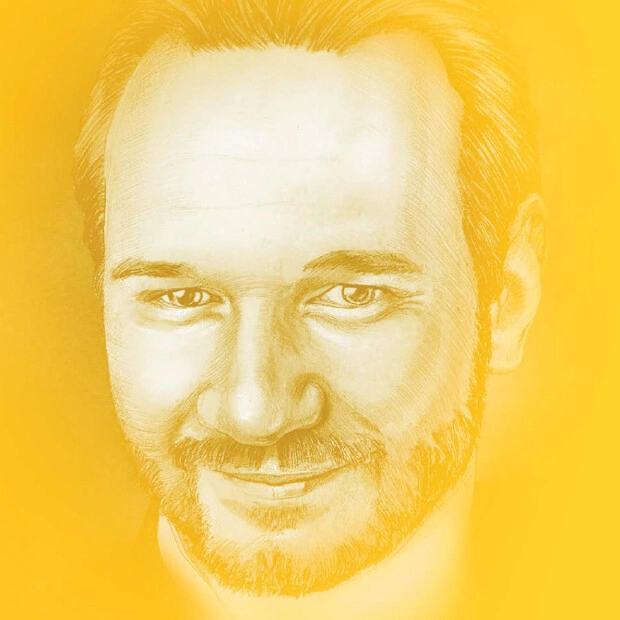The world has shifted to the Gulf. The American dream seems to be a belief from the last century that isn’t rooted in reality. Women don’t have to be feminist in order to be happy and what some people still think is progressive seems very old-fashioned now. You won’t ever be the same again after reading this exclusive interview the well-established psychotherapist and clinical hypnotherapist Her Highness Sayyida Basma Al Said gave to Lara Palmer. The message of a visionary agent of change, who has tirelessly championed the modernization of mental health in the Sultanate of Oman, is clear. Her words are sincere, and simple facts are the truest: we should be humble, gracious, united, assertive, considerate, decisive, passionate, and work together to keep this planet, climate and humankind safe and sound.
LARA PALMER: What does being Her Highness of one of the most beautiful Gulf countries mean to you? Is it more about responsibility or about freedom?
SAYYIDA BASMA AL SAID: What does it mean to be Her Highness in Oman? I really don’t have a certain answer to this question. Of course, it’s not like being a Princess from fairy tales. It means responsibility. We work very hard as well — it’s not like how everybody thinks that we sit with a golden spoon in our mouth. So, like I said, it’s responsibility because this is a beautiful country with one of the oldest histories in the Gulf and with the oldest Royal Families in the world. That puts a lot on our shoulders.
I’m very humble because if you’re not humble you are not a nice person. It’s something from childhood but you must carry it well and be humble and thankful.
L. P.: About hard work, maybe let’s open this door and speak about some interesting parts of your life. Maybe you have some business or plans that you are now exploring?
S. B. A. S.: As a psychologist I do a lot of work, I’ve been working for 24 years. There’s a lot of things that can be done in this field. I don’t only work in Oman; I’m working in that field internationally. So, there’s a lot of plans. As you know, mental health issues never end. Doing campaigns and seeing my patients primarily, exploring mental health all around the world, especially in our region is something that I do all the time, besides helping women and children who’ve been abused. I do very nitty gritty big work with the government to enforce mental health in the society in Oman, trying to push our curricula to invite people like me and have the chance to meet others. It is something I love doing — connecting with others, this is the strongest thing that I’ve been involved in.
L. P.: How do you see your role on the international stage? Do you have a mission that you formulated for yourself?
S. B. A. S.: Yes. My mission is to spread awareness for mental health and to help women and children in hard times. I mean help, for example, in war camps, refugee camps. I work on the international platform as an interna- tional speaker. I don’t speak just in our region, but all over the world. And also, I work with a lot of organisations around the world in my field.
L. P.: Can you give an example of awareness for women? Maybe you have a story that you can tell us.
S. B. A. S.: For women it’s hard to highlight. I mostly work with very strong women in the camps. I appreciate every moment I stay with them, but I can’t disclose certain stories because they’re confidential — most of them. But the idea of seeing how they go through a lot just to look after their children alone is something that I just think I’ve never seen — that kind of power — in anyone in the world more than in those women who themselves go through so much pain and so much hurt. But because they have their children and their families to look after, they forget about everything that’s going on with them and they just push themselves forward.
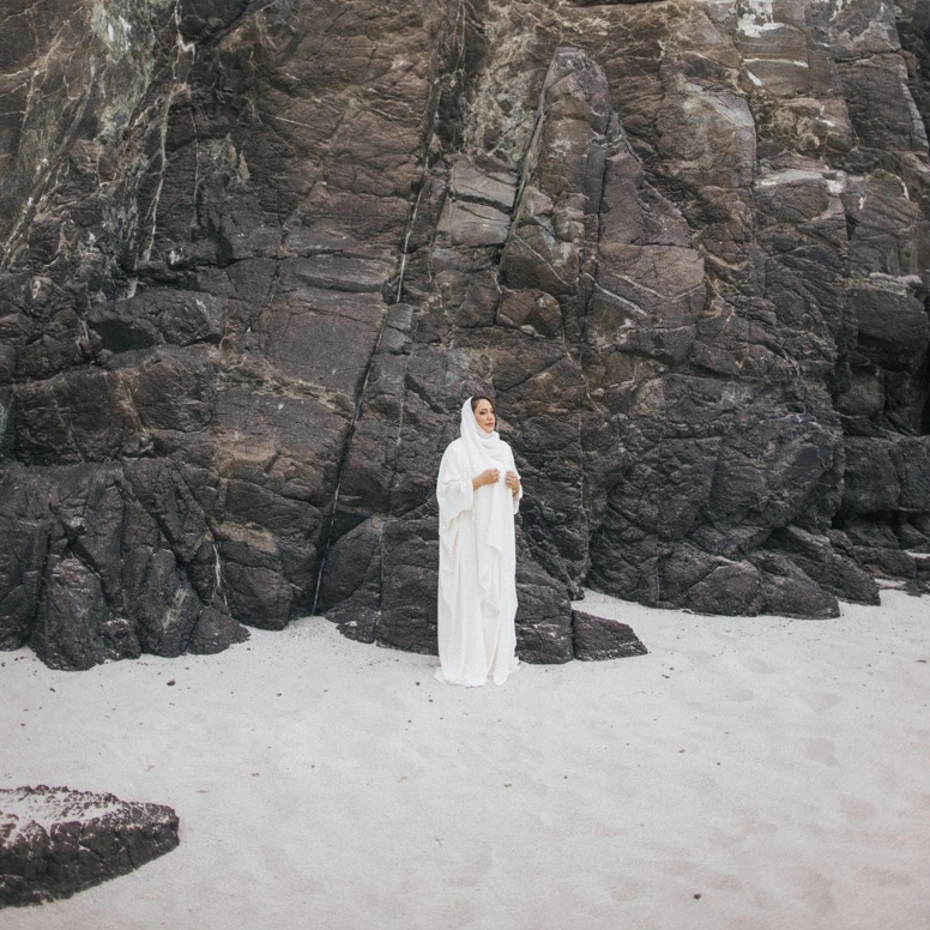
L. P.: You’ve been a mental health counsellor and psychotherapist for more than 20 years. You have your clinic and always talk about PTSD as well. So, the question is: why this route, why this direction, why did you decide to tackle this problem?
S. B. A. S.: I’ve been doing it for 24 years and it’s not a problem, but it is a job to do. I always liked mental health, it’s always been very interesting for me to know about the brain and how people behave. And besides helping my patients I also get to understand people when I meet them. It’s kind of a hidden magic trick, so if I meet someone I kind of understand who
they are and why they are like that. It’s very interesting and it changes day by day because the human mind changes.
I’ve noticed a lot as a spokeswoman and we need more studying and teaching, especially for common people. It is very important to study more about them and I’m going to spend a lot more time doing that. Being with people who are hurt so much, are not able to move on in their life, you first feel thankful for what you have and, secondly, feel you can help and at the same time get paid for your job. So, it’s the ultimate job to do.
L. P.: I would like you to open up on the steps of solving the problem of PTSD and returning to a normal life. Maybe you have some examples or advice. I know that this is a hard road for sufferers, but maybe you can tell our readers something most important.
S. B. A. S.: It’s a very big question. Basically, we always tell people, when you’re feeling that your life is not going 100%, that means you have problems in mental health. When you feel that you haven’t got that balance anymore, you have to seek help. But something is central and very important — that you only need to do it if you feel that you want to. You find a therapist and he or she will give you the steps, but it all depends on what your issue is. There are different types of issues, but most likely the therapist will first listen to you.
Now people are scared to go to the psychologist all over the world, not only in this region because it’s something very private to talk about your mental health. We understand that. But we are also sure that it is helpful. It is a process. It’s not a magic thing when in one day or the second you will be fine. It might not happen for years. But though it takes time, with time you’ll get better, and the earlier you see someone — the better for you. We will be near, but the change only begins with you, not someone else, and that’s the most important point.
L.P.: Can you talk about the campaign ‘Not alone’?
S. B. A. S.: Yes, sure. The ‘Not alone’ campaign started in 2014. We use storytelling. It means that people are not alone with their sto- ries; they come and talk about things they have gone through. They talk and people are sitting around them responding. We also do ‘Open mind’ where people express themselves, drama therapy — lots of types of New Age therapy. We use convoy therapy as well.
We talk a lot about mental health internationally and locally, now also in Morocco, Turkey, Lebanon, so it’s also an international awareness campaign.
L. P.: Why does this topic attract so much interest all around the world nowadays?
S. B. A. S.: I think it hasn’t changed; it was always interesting. People seem to talk about it when they are in a strong crisis. But it’s always been talked about — before COVID and after COVID. It’s not new. But people often believe it’s not OK to talk about it and then forget about their troubles. Every time they are broken again, though, they remember. It’s all about being functional: when you are broken you can’t function. But mental health is much more important than any physical thing because it’s your head and when your headquarters are not working your whole system will not work.

L. P.: Can you highlight the aspects of female nature that contribute to our weakness or to our strength?
S. B. A. S.: When we talk about women we are not talking in a proper way about strength. When we do that, we say that women are strong, they are better than men and so on. For me that’s an old-fashioned way to talk about it. We’ve moved on from that. We already have strength and that’s why we don’t have to keep on say- ing it. It seems that even being born with strength we don’t use it properly. We always have doubts about ourselves — our looks, society, a lot. But men don’t have doubts, they just do it, they don’t care if it’s right. I think it’s because men have a lot of support from their brothers, maybe more than women have from other women. They have brotherhood, we don’t have a proper sisterhood. So, if we were able to utilise the strength of the sisterhood and the first point is to actually believe in ourselves, life would be completely different. But also, we should be rational and think logically. We’re made in this world, man and woman. God has given us stuff, has given skills and we live together. So, we’re supposed to be together on this life trip, we cannot live apart — men alone or women alone. So, if women realise the strength that they have they can contribute so much. They contributed from the beginning bringing up children; this is a huge contribution because these children are going to live in society. A future man or woman should realise it too, and if they don’t realise this, they will have a lot of problems during their whole life. And it is our role to teach him or her properly.
L. P.: The Western world often has an illusion about the role of women in the Arab. How would you describe this role when it comes to society?
S. B. A. S.: I think the world can’t be divided into two parts anymore. Because we are all typical. There are so many aspects that can push us now; we’re all the same around the world I believe. We all have the same elements, but the environment and bringing up — that’s what makes us. A lot of the time, when people talk about the Western world, I am giving an example: I am half British and half Oman, I have both worlds. I was brought up in North Wales and I have seen positive and negative here and there.
You have to pick what you need for your life. There is the aspect of overseeing — Arab women saying: ‘Oh, haram...’ But the world
is shifted towards the Gulf. The world’s concept is changing completely. I believe we learn from each other, and nobody is superior. I see this now and love it.
L. P.: I agree with you because I am from Middle Asia, Uzbekistan. I have Russian, Jewish and Uzbek blood keeping together all the mentalities inside of me. And this is a complete world; I can’t divide it in parts.
S. B. A. S.: Yes, and that’s what makes you beautiful, these elements. That’s what makes you able to be successful in your work. I some- times get shocked when I come to a conference, and they ask how to teach the women of Oman to be empowered. Then my message is — I am educated, I’m able to speak and I can help you if you want. I’ve travelled around the world; my father is an ambassador and I’m from Oman. I can sit down and do nothing, it’s very easy. But my mission is to help people and I’m doing it, teaching awareness.
L. P.: You and your husband are highly educated people. How do you manage to balance work, public life and family? What does family mean to you?
S. B. A. S.: We are team members. He is a busy Doctor of Economics, he is also His Highness and has lots of engagements. I have another engagement. We have children and if he is busy, I ‘m with the kids, if I’m busy, he is. And both of us are successful — I think that’s important, and I think kids also understand what we do. We explain it to them: what we are doing and why, why it is important. They are with us on this journey, understand what the importance of it is, so, in a way, it isn’t something called ‘the American balance’, it’s more like a football team — we are all trying to help each other to do things.
L. P.: Being truly multicultural: born in Oman, raised in London, studied in Harvard, received masters in Australia, what would you say about the future of planet Earth? Who is able to change it for good — East or West, men or women?
S. B. A. S.: Together. The idea of equality is very nice. People understand it wrongly. Equality means people’s rights. No one is superior than others — it doesn’t work like that; to make the balance of the world you need to work together. And I think working on that is one of the most important things that we need to recognise.
There’s so much stuff happening in the world. And now with technology it is going to happen even faster, and it is going to be very difficult as well, because we are too fast. I mean I’m sure you have a very hectic schedule, you’re doing this, then you got to do that, and then it’s just like ‘wow, it’s October, wow, it’s November!’ But sometimes you just need to sit down and write, appreciate what you’re doing a bit, because we’re running so much to succeed, to survive, that we’re forgetting the elements that are essential. I honestly never really cared about the climate. But now I realise that climate is very important for our well-being. It is OK when the world is healthy and you’re healthy, but underlining it all there’s earthquakes, and global warming and there are all these catastrophes. Then you have fears, you have stress, you don’t know what’s happening in the world, so it’s very scary.
L. P.: And you know I think that the most important is the climate in relationships. How can we speak about the climate on the planet when everywhere in the world people are struggling over one point or another.
S. B. A. S.: That’s true, the world is changing now, wars are starting every- where and it’s like ‘war in news’, nobody gets horrified. It’s not right. People are selfish and not as nice as they should be.
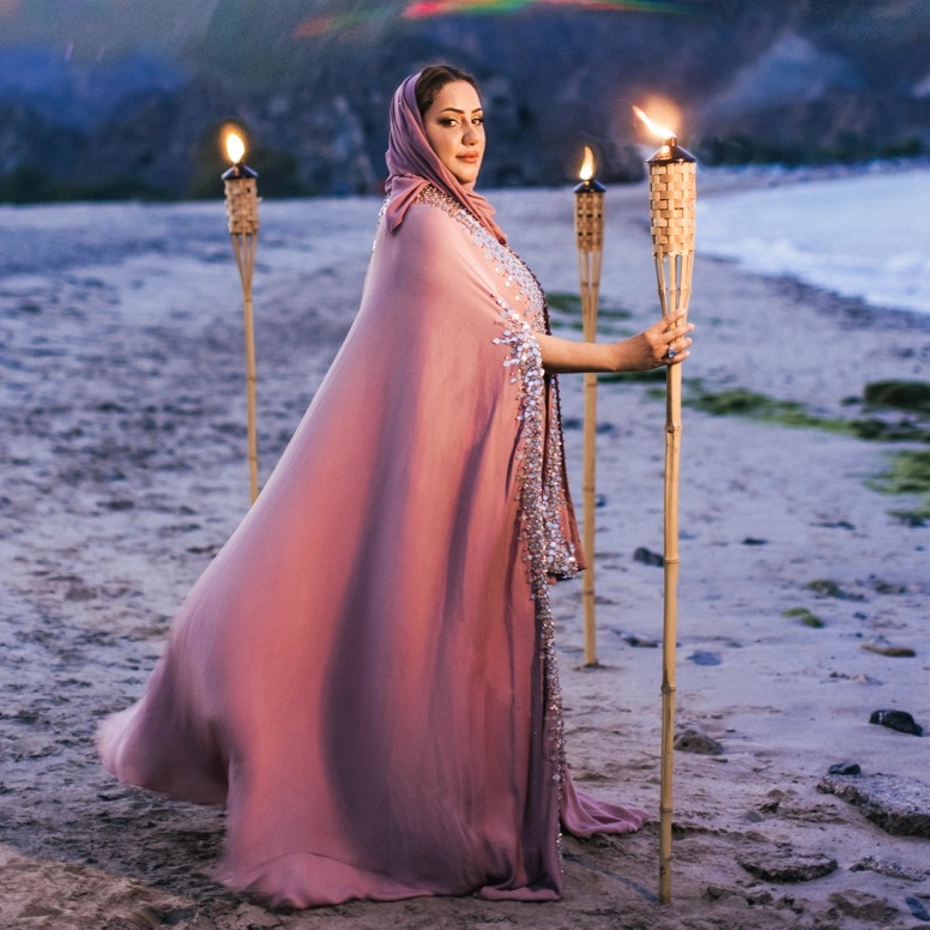
L. P.: What is the most important thing that you taught your children?
S. B. A. S.: I always teach my children to be expressive. It’s really very important for me that they can express their feelings. And I told them since they were children that they should be humble but not scared. There’s a difference between being humble and being scared. Being educated, mannered and humble shouldn’t prevent you from being outspoken. And the most important thing is to enjoy life as much as you can. It’s good to have good grades but it’s nothing compared to happiness because it is a very rare gem that we don’t find much now. We need to find it and to hang on to it.
L. P.: Happiness is the reason why we’re here, so, this is the most important, of course, we have to be happy. What inspires you most of all?
S. B. A. S.: I think that the key to my inspiration is the feedback of my patients. When I see them broken and they work on themselves and then they grow, and they are the ones making the changes. Just seeing someone who’s going through so much pain actually being able to come to the sessions and sit with me and talk to me again, and we work with them and then they actually do things — that was always very inspiring to me. I’m helping them but they don’t know how much they inspire me, so much beyond their imagination.
L. P.: Could you tell me about your biggest dream?
S. B. A. S.: I always wanted to open a mental health retreat, that was my biggest dream. I’ve always wanted to do a big programme and a proper shelter for women. These two things have always been my big goals. The last one for me is to be able to continue doing what I do. I’m still having a passion. I hope my passion never ends because that would be the end of me. And of course, living with my family, seeing my children growing up. It’s bigger than anything else, any success.
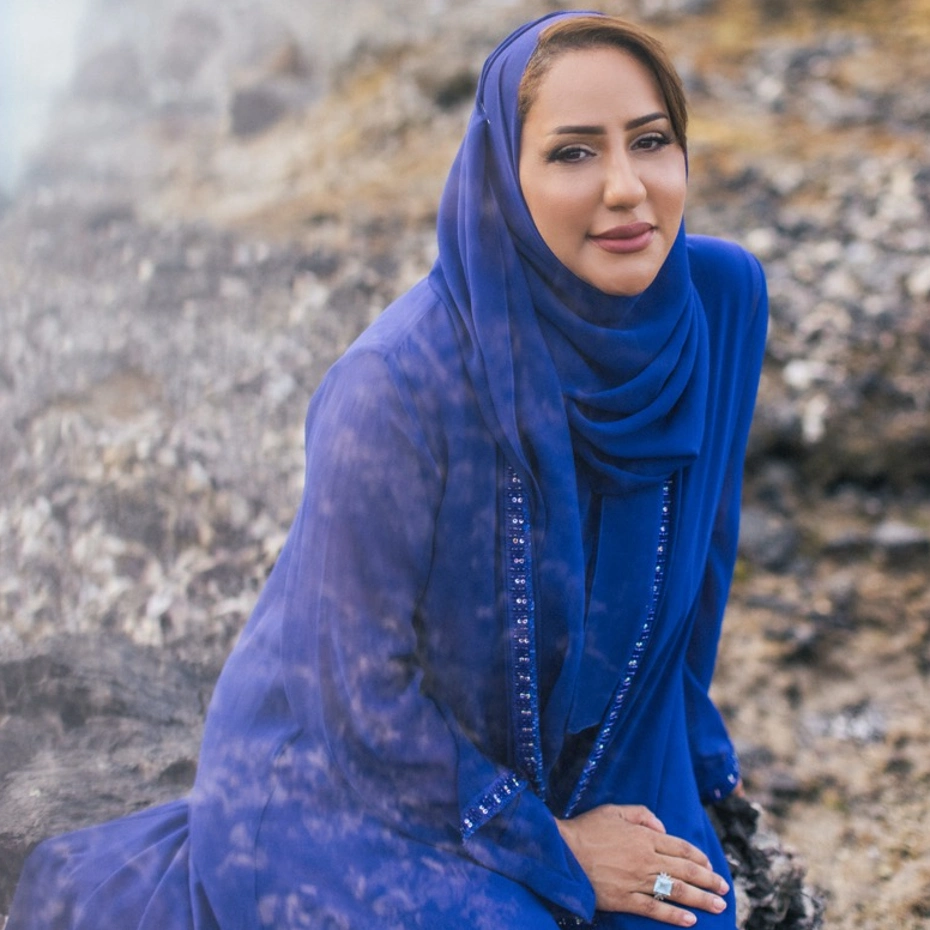
L. P.: All of us go through childhood and some moments change us forever. Could you tell me what made you the way you are now?
S. B. A. S.: I was very lucky to have three amazing women in my life. My mother was a very passionate woman. Extremely kind. I wish I could forever be like her. She always had this positive outlook on life. Even if things were very bad, if you were upset, she’d just come and give you a treat, like a sandwich may be, something small but it made you happy. My two grandmothers were very strong women and that’s something I try to be and appreciate. One grandmother was very strong and a decision maker. The other was positive, enjoying life and assertive.
* The magazine “World Arabia” extends its special thanks to the Akademy Dubai club for their assistance. The interview with Her Highness Sayyida Basma Al Said was conducted in collaboration with Akademy Dubai, where Her Highness was a speaker.
